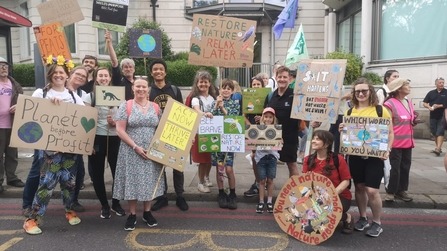Shortly after the general election was announced, The Wildlife Trusts commissioned a poll1 to gauge whether the public think political parties are doing enough to tackle the nature and climate crises and how important environmental issues will be in deciding their vote.
It revealed that the environmental policies offered by candidates play a big role in swaying people’s vote when they enter the polling station. Almost four in 10 said they would vote based on environmental issues and most people consider environmental issues to be at least as important as other issues facing the country.





